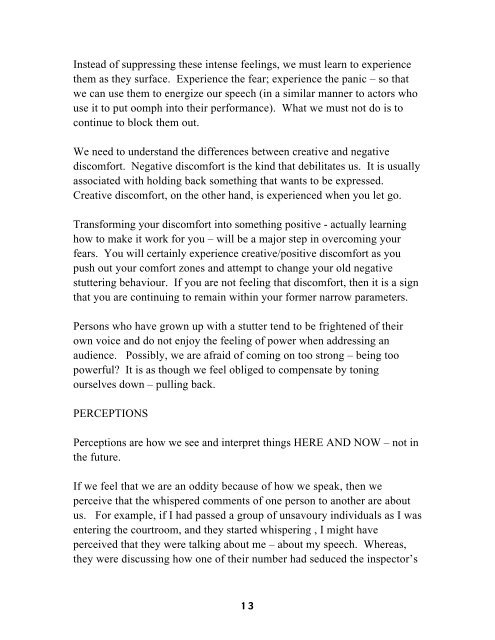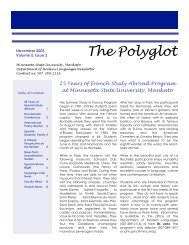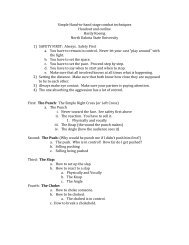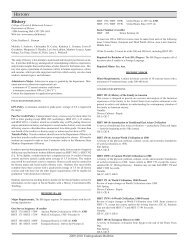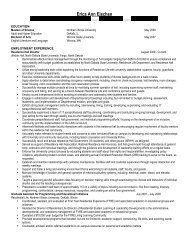TRANSCRIPT OF A PRESENTATION, BY ALAN BADMINGTON, TO ...
TRANSCRIPT OF A PRESENTATION, BY ALAN BADMINGTON, TO ...
TRANSCRIPT OF A PRESENTATION, BY ALAN BADMINGTON, TO ...
You also want an ePaper? Increase the reach of your titles
YUMPU automatically turns print PDFs into web optimized ePapers that Google loves.
Instead of suppressing these intense feelings, we must learn to experience<br />
them as they surface. Experience the fear; experience the panic – so that<br />
we can use them to energize our speech (in a similar manner to actors who<br />
use it to put oomph into their performance). What we must not do is to<br />
continue to block them out.<br />
We need to understand the differences between creative and negative<br />
discomfort. Negative discomfort is the kind that debilitates us. It is usually<br />
associated with holding back something that wants to be expressed.<br />
Creative discomfort, on the other hand, is experienced when you let go.<br />
Transforming your discomfort into something positive - actually learning<br />
how to make it work for you – will be a major step in overcoming your<br />
fears. You will certainly experience creative/positive discomfort as you<br />
push out your comfort zones and attempt to change your old negative<br />
stuttering behaviour. If you are not feeling that discomfort, then it is a sign<br />
that you are continuing to remain within your former narrow parameters.<br />
Persons who have grown up with a stutter tend to be frightened of their<br />
own voice and do not enjoy the feeling of power when addressing an<br />
audience. Possibly, we are afraid of coming on too strong – being too<br />
powerful? It is as though we feel obliged to compensate by toning<br />
ourselves down – pulling back.<br />
PERCEPTIONS<br />
Perceptions are how we see and interpret things HERE AND NOW – not in<br />
the future.<br />
If we feel that we are an oddity because of how we speak, then we<br />
perceive that the whispered comments of one person to another are about<br />
us. For example, if I had passed a group of unsavoury individuals as I was<br />
entering the courtroom, and they started whispering , I might have<br />
perceived that they were talking about me – about my speech. Whereas,<br />
they were discussing how one of their number had seduced the inspector’s


